What is Windows Device Manager? How to use it?
Windows Device Manager is an important tool in the Windows operating system, listing all the list of hardware devices recognized by Windows, including problems with unrecognized device drivers. Through Windows Device Manager, users can easily manage hardware devices in their computers.
This article will briefly introduce to readers how to use Windows Device Manager tool, as well as use Windows Device Manager to fix some errors related to computer hardware.
Start Windows Device Manager
The easiest way to start Windows Device Manager in any version of Windows is to use the Windows + R key combination to invoke the Run dialog, enter the "devmgmt.msc" code and press ENTER to execute a Windows Device call. Manager.
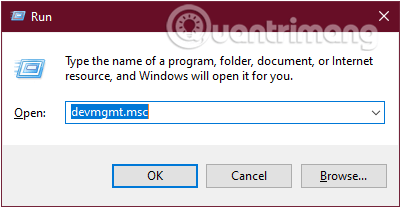
For Windows 8 , drag the mouse to the lower left corner of the screen, right click and select the "Device Manager" command .
For Windows 7 , navigate to Control Panel> Hardware and Sound> Device Manager.
See a list of hardware devices that have been identified by Windows
By default, Device Manager will display a list of hardware devices recognized by Windows at the first display, all neatly organized. You can click the arrow to see more details about each device.
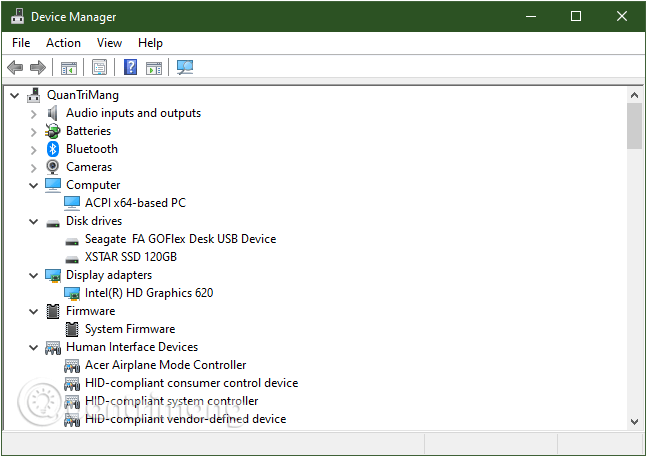
Note: Some hardware devices will not be listed, you can view them in the View tab at the top of the window and select Show hidden devices . This will help Device Manager to display information about low-level drivers in Windows and third-party driver software installations.
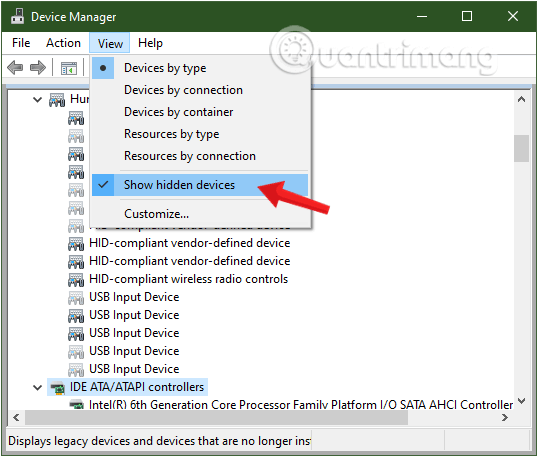
Some hidden devices will not show up in the list, even if you have selected the Show hidden devices command, such as previously connected and disconnected USB devices, called Ghosted . If you want to view them, you must start Device Manager in the following special way:
First, open a Command Prompt window and enter the following command:
set devmgr_show_nonpresent_devices=1 start devmgmt.msc 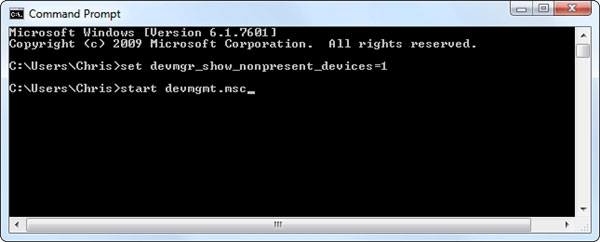
Device Manager tool will appear and list a complete list of hardware devices, including hidden. However, this method only works with Windows 7, Vista, or XP, and from Windows 8, this function has been removed.
Identify the device is not working
To identify devices that are not working in Device Manager, pay attention to the yellow triangle icon with the exclamation mark inside it . It is an icon of a device that is not working (possibly because of a driver problem).
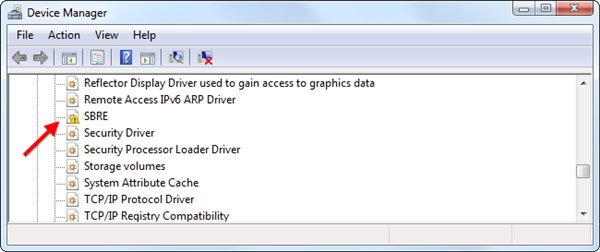
Now, right- click the icon and right-click , choose Properties to view device information and diagnose the problem (General tab). If the driver is related, go to the Driver tab and click Properties to fix it.
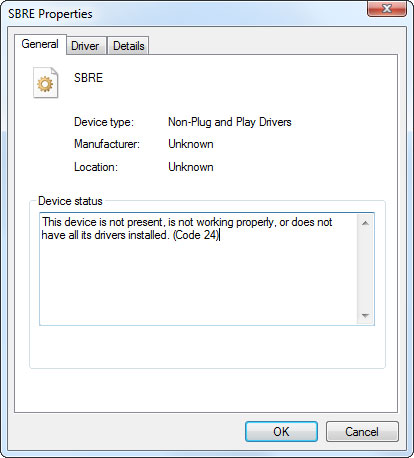
Disable a hardware device in a computer using Device Manager
If you do not use the function of some hardware in the device such as webcam, touchpad, you can disable them through Device Manager.
To do this, move the mouse to the device's location and right-click it, select the Properties command .

The Properties window of the device will appear, select the Driver tab and select the Disable Device command .

Your setup will be executed after restarting the computer.
The commands in the Device's Drivers property menu of a recognized device
The Properties window of a recognized device will provide users with a number of operational commands related to the management and troubleshooting of a device problem. All are listed in the Driver tab, including:
- Driver Details: Information about the device and the exact location it is present in the computer. This option is not very important.
- Update Driver: Update the new version for device drivers. This option includes 2 options, search online and on the computer the new version of driver driver.
- Roll Back Driver: Options to restore the status of the previous version of the driver driver.
- Disable: Disable the device, preventing it from working every time Windows starts.
- Uninstall: Uninstall drivers associated with devices from your system. This option is often used to remove certain drivers from your system and try to reset devices and drivers from scratch.

Hopefully with this article, you will have more knowledge about the Windows Device Manager tool that is quite useful in Windows.